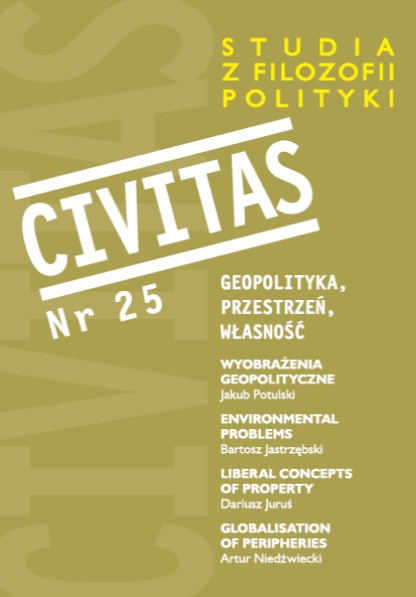The Manager of Providence? Contemporary Catholic Thought Regarding Environmental Problems in the Light of Encyclical Laudato Si’
The Manager of Providence? Contemporary Catholic Thought Regarding Environmental Problems in the Light of Encyclical Laudato Si’
Author(s): Bartosz JastrzębskiSubject(s): Christian Theology and Religion, Philosophy, Social Philosophy, Theology and Religion
Published by: Instytut Studiów Politycznych PAN
Keywords: creation; environment; Catholicism; Catholic social teaching; ecology; integral ecology; justice; eschatology of non-human creation; common good; property right;
Summary/Abstract: Opposing ecology to Catholicism, or vice versa, has no dogmatic, theological or philosophical foundations – it is a purely rhetorical and political maneuver. Catholicism is, and must be, deeply ecological – although this necessity has not always been properly displayed (but it should also be admitted that circumstances did not require this). This is clearly evidenced by both biblical testimonies confirming the value of every being and the reflection of Tradition within the theology of creation. Similarly, in this context, there are no grounds for invoking the “holy property right” (as some conservative liberals and “libertarians” are willing to do) to justify the robbery and destruction of nature. Within the Catholic doctrine, property law is by no means holy, only conditional, and does not absolve us from treating property as a common good at the same time. Of course, this does not mean that Catholic teaching promotes in any way formal and legal restrictions on the right to property – such ideas have been repeatedly and decisively rejected by the Church. The limitation of the right of ownership is moral here – it is a postulate of justice and responsibility. At the same time, it is an expression of anthropological realism: we, all individual people, die, all families and nations expire and the earth, air and water remain. We are obliged to respect it. Opposing the good of the environment to the welfare of human communities makes no sense. Only extremely shallow and superficial reflection can build and invoke such oppositions. In general, this is not a reflection at all, but only an attempt to create ad hoc justifications for obtaining an easy income at the expense of the environment. With the current population of our planet, no one can perceive themselves or their immovable property as absolutely autonomous. We will be able to meet most of the most serious challenges related to environmental changes only when we understand our own responsibility for all living creatures along with their and our entire environment.
Journal: Civitas. Studia z filozofii polityki
- Issue Year: 2019
- Issue No: 25
- Page Range: 161-180
- Page Count: 20
- Language: English

